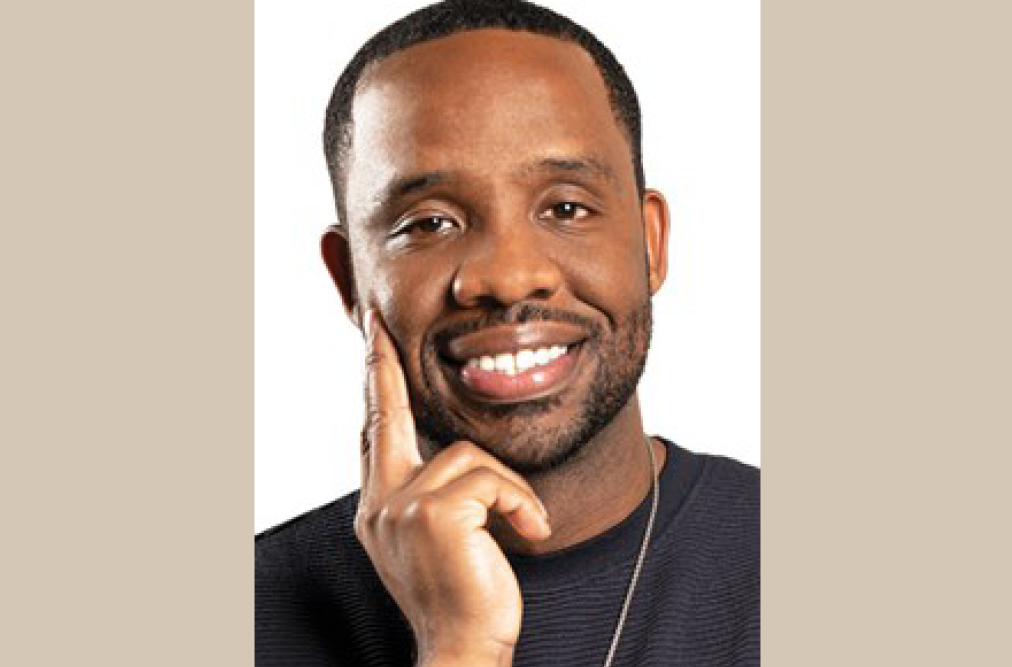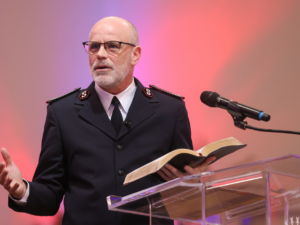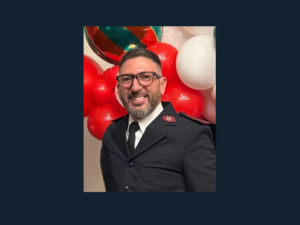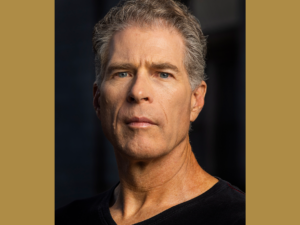Are you out the door at 5:01, won’t work weekends and prefer texting to face-to-face meetings?
Or do you live to work, can’t text and can’t tolerate change?
Like most stereotypes, these over-generalized generalizations about generational groups lead to further miscommunication—and often aren’t correct.
So how does one speak across generations, particularly in the Church?
Rev. Dr. Darrell Hall lays it out in his new book, “Speaking Across Generations: Messages That Satisfy Boomers, Xers, Millennials, Gen Z, and Beyond.”
He currently serves as the Campus Pastor of the Elizabeth Baptist Church campus in Conyers, Georgia.
And he’s made it part of his ministry to communicate effectively with members of every generational people group—each with its own culture and preferences.
He’s on the show to share more about this idea of generational intelligence and how we all can better speak across generations.
Show highlights include:
- More of Rev. Dr. Darrell Hall’s story.
- How he would describe his new book and what led him to write it.
- The generation he is part of and what it’s known for.
- How the generations stack up against each other.
- What generational intelligence is.
- Why it is particularly key in the Church.
- How one grasps the language of a different generation.
- The congregation’s response to focus groups and research on the disconnect between different generations in his church.
- How he speaks to multiple groups at once.
- His best advice for speaking across generations today.
Listen and subscribe to the Do Gooders Podcast now. Below is a transcript of the episode, edited for readability. For more information on the people and ideas in the episode, see the links at the bottom of this post.
* * *
Christin Thieme: Dr. Hall, welcome to the Do Gooders Podcast today. Thank you so much for joining me.
Darrell Hall: Hey, Christin, how are you? I’m glad to be here today.
Christin Thieme: Absolutely. I’m happy to have you. As we start out, can you tell us a little bit about your story, some of the highlights of what led you to today?
Darrell Hall: Yes. Well, I reside in the Atlanta, Georgia, area, born and raised here. And I currently serve from a ministerial standpoint as a pastor at a multisite church context. I’m married for 15 years. We have three sons, and I enjoy communicating with people. I enjoy serving with people. I enjoy the experience of being able to be used by God to influence and impact people as best I can. And I essentially realized God was calling me to ministry when I was 17 years old. And from that time until now I’m 35, I’ve committed my life to the ministry, to seminary training school and been able to serve my church and community on so many levels, that quite frankly I’m just grateful for.
Christin Thieme: Yeah. It sounds like a lot. I love it. A lot of good stuff. And you just wrote a new book as well that is called, “Speaking Across Generations: Messages That Satisfy Boomers, Xers, Millennials, Gen Z, and Beyond.” So how would you describe this book, and what led you to actually write it?
Darrell Hall: Yeah, great question. This book is, I believe a source of hope, and guidance and clarity for communicators and people who want to connect with people of different age groups, but who are having a struggle trying to figure out exactly how to do that. I believe this book will give them hope and also kind of the how to, as it relates to connecting across generations. What led me to write the book is really a kind of a lifelong evolution, if that makes sense. When I was a teenager, my mom told me that she didn’t have any money to send me to college, but I didn’t have a choice. I had to go to college.
And so we had to figure out some creative ways to raise finances and scholarships. And so we started to enter me into these oral talk contests. And so for years in high school, I lost every contest I entered, never won the big prize and got the big money until my senior year of high school where I did. And God blessed me to be able to win oral talk contest from a local level all the way up to international, and accumulate like $30,000 in cash for school.
Christin Thieme: That’s amazing.
Darrell Hall: And I thought that I was just… Yes, it’s an amazing, when I look back on what God did for me and how he used it to shape my heart for him and for people, it’s amazing. I thought I was just helping my mom help me go to college, and then I realized God was preparing me to communicate his Word, and God wanted me to be a preacher. And so for me, my passion for effective communication starts in a place that I see how God developed this skill in me, and then used it to open doors for me that from a socioeconomic standpoint, from an ethnic or racial standpoint, from a purely statistical standpoint, when I look at my life and being raised by a teen mom in the inner city of Atlanta, God used his skill and ability to help open up doors of opportunities not just for me, but then also on top of that, to prepare me to serve his kingdom.
And so my heart for effective communication is tied to how God is uniquely woven into my story. And then coming out to this point in my life where I realized the disconnect I see so many preachers and communicators, and leaders having with people of different generations, I just felt led by the spirit and supported by some good research to take some life stories and some insight, and hopefully encourage some communicators along the way.
Christin Thieme: Yeah. And your book caught my eye because we talk a lot about cross-cultural communication, and more effectively doing that, but we don’t often think about generations as different cultures, and they do have their own culture. So what generation are you a part of? And what’s it known for?
Darrell Hall: Great question. I do agree that generations have their own cultures, and we should study them as we do any other subset of people groups. I’m a Millennial. Okay, that means I’m born in 1986, but the Millennial group are those of us who are early ’80s to late ’90s, depending upon what bracketing you use. Barna Group would say, I believe about ‘83 to ‘98. Some others may say ‘80 to ‘99, but I’m a Millennial. And some of the things we are known for is, just in general, nothing specific to communication, but open-mindedness, we are known for really living in a truly global world because of the advance of technology during our coming of age years.
The world is a lot smaller, and information travels a lot faster, just due to the times when we live in. Millennials are also known for being very passionate about callings, not callings, I want to say movements, missions larger than self. Millennials are also known for preferring to have a sense of internal purpose being fulfilled, than to work in a career for an extended period of time for the sake of being a career person. And that could create a lot of frustration for people who like to hire Millennials or trying to attract Millennials.
Because we can seem to be those who jump around and lack focus, and lack commitment. When that may be the perception of some, but the perception I think of Millennials is, we’re seeking purpose and something, some bigger life mission as worthy of our time in our space. And Millennials, as I talk about in the book, we are people who prefer dialogue in every space, about every major topic, about all life values, we prefer to hear and also be heard.
Christin Thieme: So those are Millennials, as an overview. For the rest, how did the generations stack up against each other? What would be your overview explanation?
Darrell Hall: Yeah. Great question. So Millennials right now, we’re kind of wedged in the middle, believe it or not. So we got a few older than us, and a couple younger than us. We got the Boomers, we got the elders or Silent Generation, born in ‘45 and before, then the Boomers and Xers, they’re ahead of us, and then behind us we got Gen Z, and now the Alpha Generation that’s coming along. So we’re kind of in the middle right now.
The way it stacks up by comparison is first of all, Millennials are, in American history, the largest generation. We have the most live births in American history, so we beat the Boomers in that regard, and now we currently have the most living Millennials compared to those who are in other generations. So we’re the largest generation.
And by contrast you have Gen X, who’s the smallest. And Gen X was that generation who from ‘65 to ‘79 is kind of wedged between the Boomer and Millennial subgroups. And so with Xers, you find those who in general were latchkey kids, who were in large part let down by many institutions they were told to trust, starting with the home and the family.
Divorce rates were skyrocketing for their parents. Government, big business, they experience these heartbreaks on so many levels that they, I think in general, become skeptical of blind trust, and at the simultaneous to heartbreak on all these levels, there was also the increase of information through post-secondary education, creation of the internet. And so Gen X is that group who demands to be intellectually stimulated, and who needs proof, who needs something valid, something outside of just another’s opinion in order to consider or to accept it is real, or authentic. And they must test that against their own intellect access to knowledge.
The group before them are the Boomers. I would describe Boomers as very successful, financially well off. Right now in their careers, many of them are transitioning into senior adulthood, but a lot of them are still sitting on top of the mountains of culture. In every area of life the world has situated itself around Boomers. Targeting them, marketing to them. Boomers can have it their way, and they really lived in this world where they were the apple of America’s eye, so to speak. And have benefited in large part from that.
Boomers are also the first generation to enter something that sociologists defined as second adulthood. And so a lot of boomers are old enough to have finished their first act as an adult, whether that’s 30 years in a career, raising a family, life in military, what have you. And they’re old enough to have finished doing something substantial for 30 years, but they’re too young to be considered “old,” too young to pull from their pensions, too young to pull from monies they’ve saved up for retirement. So they got like a 10 to 15 year window of good health, and opportunity to do something else, and that’s second adulthood. I champion the Boomers—show us the way; we’re going to be following you all in that way.
And then right behind us really quick is Gen Z. Gen Z is a very relational generation. They stack on top of Millennials and their desire for dialogue, but more than that, there has to be this sense of trust, authenticity, transparency, which cannot be faked. And those who want to connect with Gen Zs must respect their heart for and desire for true authentic, relational connection. That’s the short of how the generations stack up.
Christin Thieme: Yeah, I like it. So you use a term in the book, generational intelligence, is that what you just described to us? I mean, is that being able to talk effectively about all these different generations in the way that they communicate? What is that?
Darrell Hall: Great question. Generational intelligence starts before one’s ability to talk about how generation stacks up, and it starts with a curiosity to investigate how people who are born within a certain window of time share cultural similarities.
Generational intelligence is our own curiosity of how people born between ‘46 and ‘64, Baby Boomers, wat is distinct about these people as an age cohort, or as a generational people group? What is distinct about how the world shapes them, and they shape the world that is different from people who are born during other age brackets?
And generational intelligence is just that. That curiosity that reads up on studies and tries to stay on the cutting edge of what’s going on with people born in certain age cohorts. And that starts with a curiosity, but what it includes is an open mind. It includes being able to read articles, follow sociological trends, track with certain age groups through life stages, and then begin to see the distinctions between, okay, here’s how Boomers are distinct from Xers, from Millennials.
It’s the respect of the otherness of each generation compared to other generations, as opposed to this lumping all together, those young folk, those old folk. These generalizations that don’t give due respect to the distinctions and otherness of people born within certain windows. And so that curiosity, that respect, I think that’s the beginning of generational intelligence, and then reading and staying on the cutting edge of sociological trends is how you exercise it.
Christin Thieme: Yeah. So why is this all particularly important in the context of the Church?
Darrell Hall: Oh, I think this is… Oh biblically, I could talk about why it’s important, and culturally as in today, why it’s important. Biblically, I think it’s important because there are metaphors, the New Testament gives us for the Church. The most popular metaphor is body of Christ. Using the human body as a metaphor for how the Church should function. But there are other metaphors like family of God, household of God. And so when we want to know why the Apostles would use phrases like family of, household of, it brings us back to certain passages and Titus, like the older women are to train the younger women. There was this expectation of the Apostles that the Church would be intergenerational.
That the older and younger, people of different groups at different ages and stages of life, would coexist in the fellowship of the Church. And the reason that’s important is because, with the increase in resources, with desire to reach people where they are, sometimes I think the modern Church could stumble into generational stratification. Meaning, we separate the generations in how we minister to them. And there’s this fear of, or assumption that it’s impossible for the generations to gather to be in a healthy cultural fellowship type thing in the Church.
So from a biblical standpoint, I think it’s important because of metaphors like, family of God. When we look at even the Old Testament, the Israelites were intergenerational by nature, Abraham, Isaac, and Jacob, God was the father of.
I think from a cultural standpoint, the reason it’s important is because, as the world changes, I think we’ll see more distinctions in generational groups than we probably will in ethnic groups. A lot of ethnic groups obviously have our own separate cultures and ways in which we see the world as subset, or that lens through which we see the world.
But I think as the world, as technology continues to advance, the world globalization becomes smaller in the sense of how information travels. I think we’ll see a greater distinction of how people of certain age groups enter the world, than we probably did 50 years ago or 100 years ago. And so it’s important for where we are in history, that the way lines are drawn, that churches used to aim at being inter ethnic that now I think as we move forward into the future, it’s going to be intergenerational, it’s going to be socioeconomic and generational demographics. That kind of subdivide the human race in a unhealthy way.
Christin Thieme: So you write about doing research around this, that you hosted focus groups in your own church and really saw the disconnect between the different generations in your church. And then you shared that information with the congregation. What was the response?
Darrell Hall: That is a great question. So yeah, I did. So the research that supports the ideas in the book is both local and national. So I did some local research, focus groups in my church and I show people in the book how to do their own. I also did some national research as well, that kind of speaks to the ideas I’m sharing. But here’s what was interesting about my church. What led me to do the focus groups, was that I realized I was connecting with different generations by mistake.
And I was an anxious wreck as a young pastor, trying to figure out how to be wholly Millennial without alienating the Boomers, and Xers, and elders who were in weekly fellowship. And to be honest, Christin, I didn’t know what I was doing. It was effectiveness by mistake. It was ignorance on fire. It was the grace of God, but that anxiety in me of not wanting to lose those connections, but not lose myself. I think the Holy Spirit used that to put me in a place to investigate and learn.
And what I discovered is many other generations didn’t really understand or appreciate that people of other age groups, or generations needed something different in the preaching moment. And when I discovered that each generation needed something different, but wasn’t always aware of what other generations needed, to me that gave me an opportunity to set the tone, speaking to a culture and develop the heart in my congregation for those of one age group to better appreciate and respect those of another age group.
So here’s what I did. I took John 3:16, the gospel in a nutshell, and I preached that same verse and biblical truth from five different generational standpoints, while all generations were present. And I told them this is what I was doing. And we had fun together. And this is during a Sunday morning service for, it took me about four weeks to preach through these generational concepts.
And it culminated with this John 3:16 sermon. And what I discovered was not only were their hearts open, but as they saw the differences displayed, they were more appreciative of the work we had done together as a congregation through the focus groups. And I think, equipped as well to now go out into the world and better connect with people of different age groups.
Christin Thieme: Yeah. And just that basic awareness too. I mean, it’s one of those things you don’t really stop to think about, although you do hear the debate often between the hymns and the worship band.
Darrell Hall: Yes. Which is, that’s a microcosm of how churches argue generationally. That is definitely one of them. Great point.
Christin Thieme: So you regularly preach and teach across five generations today. So how do you speak to these multiple groups at once? I mean, I’m guessing you don’t give your sermon five different ways every Sunday?
Darrell Hall: No. I don’t.
Christin Thieme: So how do you address everyone at once?
Darrell Hall: Great question. Now, I’m going to be honest. It’s easier to do when they’re divided. So if I know for example, Wednesday at noon, our church has a noon Bible study that primarily reaches Baby Boomers and the Silent Generation. That’s easier for me to shape my rhetoric, and my approach to them. But what I do on Sundays is… No, I don’t spin one principle five different ways every week. What I try to do though, is if I’m going to preach on a certain topic, or passage, or doctrine let’s say for the next three to four weeks, I try to adapt a different approach from week to week, if that makes sense.
So let’s say for example, you want to preach about finances from a biblical standpoint, I would for three to four weeks say, “Okay, this week, I’ll try to shape my approach to speak more to the Boomers and Xers. Next week, I’ll try more of a dialog approach to reach the Millennials where they are. The next week, I’ll try more of a relational approach to reach Z where they are.” And what I discovered, Christin, is this, a lot of times preachers, I think we miss that sometimes people need to hear the same truth four times before they ever heard it once.
And so it’s no harm, particularly if you are the pastor and you can address this same congregation week in and week out, there’s no harm in taking that one biblical concept of principle and re-approaching it, or re-explaining it in different terms and ways week in and week out, in which you’ll discover, not only will you reach all the generations, you will clarify the minds of every generation, the biblical point or the truth you’re trying to communicate. That’s one way to do it.
Another way to do it is, you can take, and I’m speaking directly to communicators here, you can take a concept, you can subdivide your year and say, “Hey, this month we want to reach families, but not just families, Millennial families. We realize that in our neighborhood, the complexion of our neighborhood is changing generationally, and many of the heads of households are now in the Millennial group. And we want to grow our church by blank Millennial families. So for this month, we’re going to reach Millennial families.”
And then you galvanize the church around that concerted effort, so that even though someone may be a Boomer or Xer, they can contribute to the church’s goal of reaching Millennial families, and even learn through a month long teaching through Millennial language, how to better connect with people in that subgroup, or in that generation when they’re outside of church.
So yeah, I try to go from week to week, or from concept to…From month to month and target a certain group based upon whatever some of the practical goals may be. And then I do intersperse it from here to there, from week to week. But it’s easier for pastors who can address the same people every week, because they can be more conversant and continue this, you know what I mean, this ongoing connection?
Christin Thieme: Yeah, and really reinforce it.
Darrell Hall: That’s what I’m trying to do.
Christin Thieme: Yeah, I like it. And you give a lot more practical advice for communicators in your book. But lastly here, whether you are a communicator, a preacher or just a member of the congregation, what’s your best advice or encouragement on how to speak better, more effectively across generations today?
Darrell Hall: Yeah. Great question. If you are having any kind of communication, or relational breakdown with another person, and you suspect that one of the main reasons might be because they are a different age than you, then here’s the advice I would give. First of all, I want to encourage you to have hope that it is possible to learn how to connect with someone who is different than you, I mean generationally different—be hopeful despite whatever trauma or hurt feelings you may have in the past of a broken understanding, I want to first encourage you to be hopeful that it is possible.
Here’s the second thing I want to challenge you to do. When it comes to trying to reach people of a different age group, I want to encourage you to think about winning the person, and not winning the point. To not be so focused on being right, that we missed the opportunity to be loving. And I think what that does is that recalibrates our approach to communication. That if my goal is to win you and not win the debate, then I will approach you differently, even if I disagree.
And so if you’re having a breakdown with somebody of a different age group, have hope you can reach them, you can connect, it’s possible. But in order to do that, the priority has to be to win the person or the group, and not to win the point or the debate or the argument. And I think if you have those two points of views, then my book would definitely encourage you of how to do that, even if you’re not a preacher. If it’s in your family, your household, if it’s in a professional area or career, if you’re trying to galvanize or get more people of a certain age group to serve and volunteer more, how do you reach them?
How do you take these great service opportunities and connect them to people who have a heart and want to do them, they just may not be receiving the, ask in the way that you’re giving it. So I think in all those ways, the content will help, but it starts first with a heart, with a hope that I can do it. I can learn how to connect with people of different generations. And this is coming from a Millennial, who’s had to learn how to connect with Boomers, and Xers, and Gen Zers. I have hope that it’s possible. Once I have that true hope, then a book like the one I’ve written can help you learn how to win the person, learn how to understand life from their standpoint.
Christin Thieme: Yeah. I love it. Dr. Hall, thank you so much. Thanks for giving us all of this excellent advice and encouragement on just being better communicators, and better relating to people in all of our relationships. Thank you.
Darrell Hall: Thank you for having me, Christin. I appreciate you all. And thank you for the great work you all do at The Salvation Army.
Additional resources:
- Read “Speaking Across Generations: Messages That Satisfy Boomers, Xers, Millennials, Gen Z, and Beyond” (IV Press, 2022) by Darrell E. Hall.
- You’ve probably seen the red kettles and thrift stores, and while we’re rightfully well known for both…The Salvation Army is so much more than red kettles and thrift stores. So who are we? What do we do? Where? Right this way for Salvation Army 101.
- Get inside the Caring Magazine Scripture Study Collection and find a suite of free, downloadable Bible studies to guide you through topics from New Beginnings Through Forgiveness, to Understanding our Imago Dei or Life Hacks From David.
Listen and subscribe to the Do Gooders Podcast now.












